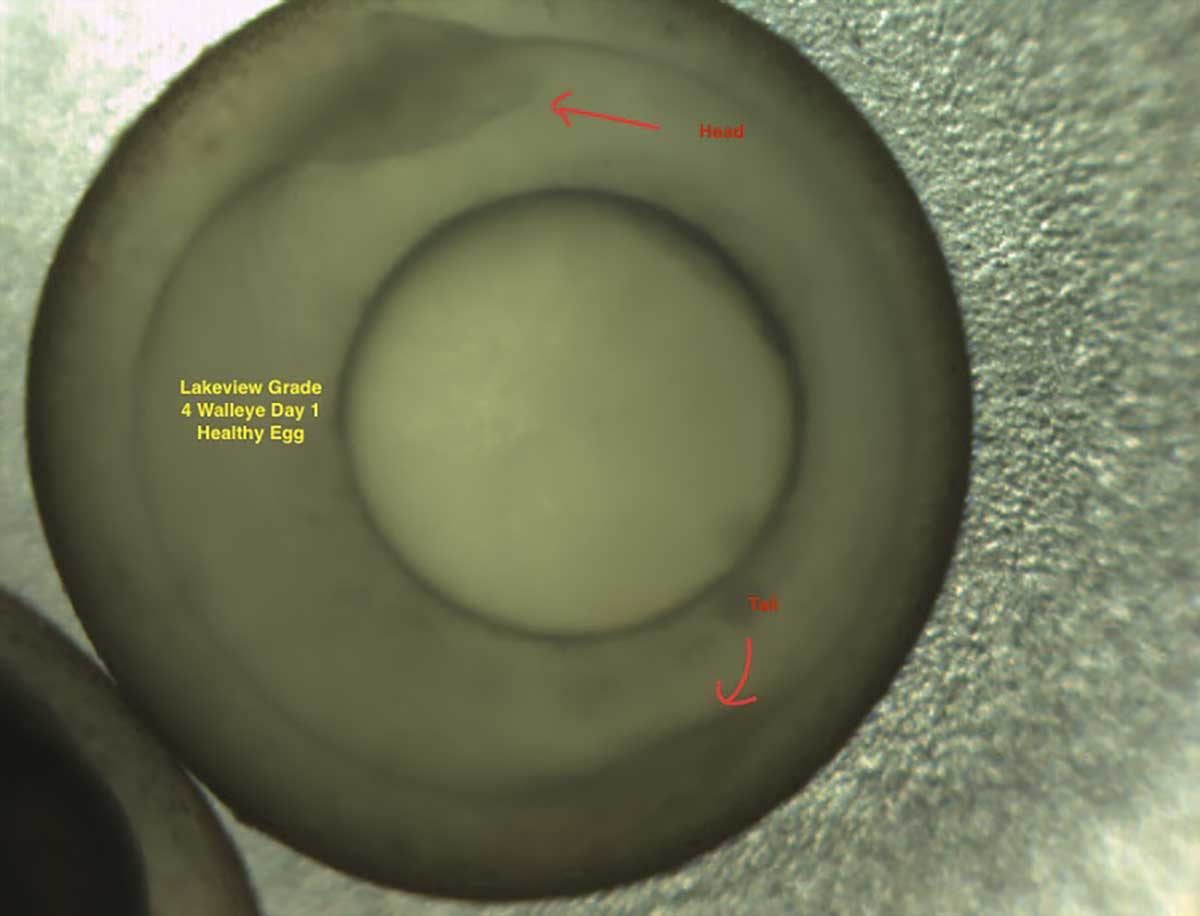Lakeview School looks out for future generations
by Destiny Migwans
As Lakeview School celebrates the sixth year of its in-school fish hatchery system, we want to bring attention to the importance of this program and its impact.
This past year at Lakeview, there were roughly 10,000 brook trout in the classroom micro-hatchery. Once the eggs hatched over about two months, depending on the temperature of the water, the fish were taken down to the M’Chigeeng Creek. Lakeview has also taken part in hatching walleye eggs, and have stocked about 400,000 to 500,000 walleye since 2015, alongside 20,000-30,000 brook trout that have been released into the creek over the past four years.
Research and data have shown that fish eggs in the wild have a less than two percent chance of hatching and surviving due to predators. In the classroom hatchery, fish eggs have a 99 percent chance of hatching. To put that into perspective, in the wild 2,000 eggs would hatch and possibly survive out of 100,000 eggs, and 99,000 out of 100,000 in a tank, would hatch and be released into the M’Chigeeng Bay.
Fishing on Manitoulin Island has always been a huge part of people’s lives. While there is no real evidence of the increase of fish in our lakes and rivers due to the hatchery, locals including students from Lakeview have noticed in their 20+ years of fishing in the M’Chigeeng Bay that just over these past five years there has been an increase in walleye numbers in annual harvests. This supports the idea that Lakeview School’s micro-hatchery system has been successful.

The reasoning behind this program includes its educational benefits and the environmental impacts of the program. The idea was introduced by Rolly Frappier of Micro Hatcheries Inc., former Lakeview School principal Neil Debassige, and current Grade 7/8 teacher Travis Corbiere, along with the Grade 4 class of 2014/2015. The importance of the program lies in the learning opportunities for the students of Lakeview and the value for the community of M’Chigeeng in increasing the local fish populations for generations to come.
The ultimate goal is to keep the cycle of what we have now for the future generations of families. Not only in M’Chigeeng, but all over the Island and the Great Lakes. It is only fair to give back to our planet for what we have taken.
“We need to think seven generations after us; what do we hope for those children?” said Lakeview School Grade 7/8 teacher Travis Corbiere.



